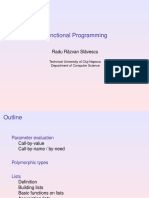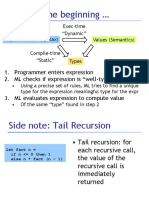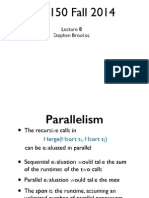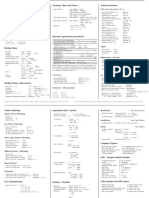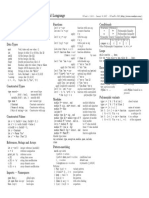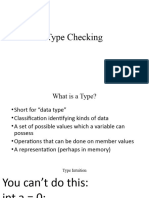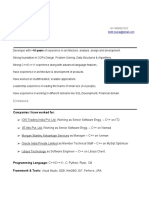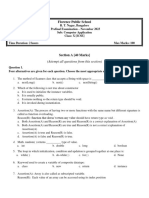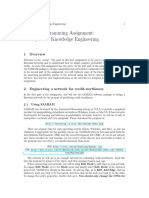0% found this document useful (0 votes)
291 views34 pagesSML Tutorial PDF
This document provides tutorials on the Standard ML programming language. It introduces key concepts like expressions, declarations, functions, pattern matching, types, and polymorphism. It shows how SML allows defining recursive datatypes and functions over those datatypes. Examples demonstrate how to represent and analyze programs as recursive datatypes in SML.
Uploaded by
Ayushi sharmaCopyright
© © All Rights Reserved
We take content rights seriously. If you suspect this is your content, claim it here.
Available Formats
Download as PDF, TXT or read online on Scribd
0% found this document useful (0 votes)
291 views34 pagesSML Tutorial PDF
This document provides tutorials on the Standard ML programming language. It introduces key concepts like expressions, declarations, functions, pattern matching, types, and polymorphism. It shows how SML allows defining recursive datatypes and functions over those datatypes. Examples demonstrate how to represent and analyze programs as recursive datatypes in SML.
Uploaded by
Ayushi sharmaCopyright
© © All Rights Reserved
We take content rights seriously. If you suspect this is your content, claim it here.
Available Formats
Download as PDF, TXT or read online on Scribd
/ 34






